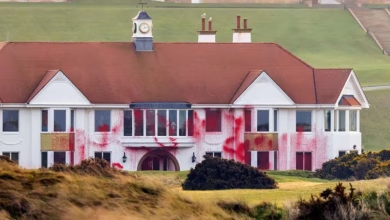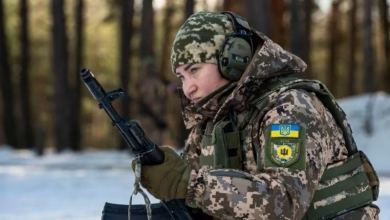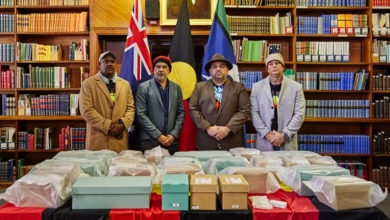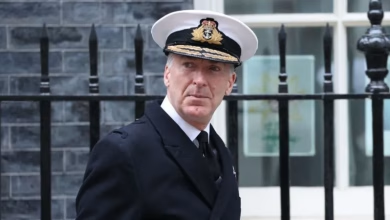Tear Gas Fired at Kenya’s National High-School Drama Competition
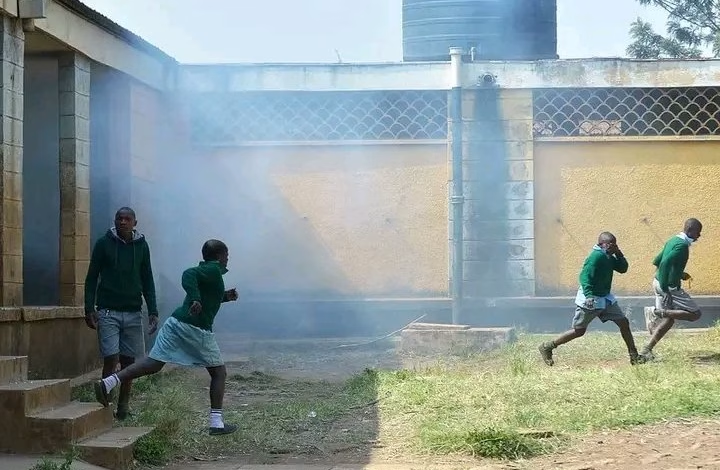
- Kenya High School Drama Festival Shaken by Controversy and Protest
- Kenyan Students Boycott Play Over Author's Detention
- Controversy Erupts Over Play Criticizing Government Leadership
Kenya’s national high-school drama competition has been overshadowed by unrest after police fired tear gas to disperse crowds gathered to watch a contentious play, Echoes of War.
Set in a fictional kingdom where the youth have lost faith in their leaders, the play features clashes with police and has drawn comparisons to last year’s youth-led protests against tax hikes. Initially disqualified from the festival under unclear circumstances, a High Court ruling overturned the decision, allowing its inclusion.
Tensions escalated in Nakuru on Thursday morning when student performers from Butere Girls High School stormed out of the venue, demanding the release of the play’s author, Cleophas Malala, who had been detained by police.
Malala, a former senator and scriptwriter, had been blocked from meeting the students for final rehearsals on Wednesday evening. He was later released without charge and commended the students for boycotting the performance.
“The young girls of Butere Girls’ have exercised an act of heroic restoration. I’m determined to ensure that Echoes of War is displayed before a Kenyan audience,” Malala said after his release.
The students briefly sang the national anthem before leaving the hall, which had been sealed off by anti-riot police armed with batons and tear gas canisters.
“There’s no audience. Who are we performing for?” one student asked journalists, while others voiced complaints about police harassment.
News of Malala’s arrest drew large crowds outside the venue, eager to see the play. However, anti-riot police deployed overnight fired tear gas to disperse the would-be audience.
Education Minister Julius Ogamba questioned Malala’s involvement in the competition, stating that he was neither a teacher nor a play director.
“I wonder why a politician should be a scriptwriter for a student performance. Even the competition loses value if we do not allow the teachers to be scriptwriters,” Interior Minister Kipchumba Murkomen added, cautioning politicians against using students to settle political scores.
“Let us have a thick line between politics and education,” he emphasized.
The controversy has sparked public outrage, with Amnesty International condemning the government’s actions as indicative of “state-sponsored repression of free expression, press freedom, and the right to associate.”
Chief Justice Martha Koome criticized Malala’s detention, asserting that it violated the court order permitting the play and its author to participate in the festival.
“Defiance of court orders not only undermines the authority of the courts but also poses a serious threat to the rule of law, which is the bedrock of our society,” she stated.
Prominent opposition figure Kalonzo Musyoka denounced the police for firing tear gas near students and praised the “brave” performers for refusing to take the stage.
In a statement, the opposition Orange Democratic Movement (ODM) demanded that the students be allowed to perform their play like other competitors.
Echoes of War portrays a tyrannical sultan angered by youth activism, drawing parallels to Kenya’s current political climate, where young people have been advocating for better governance.
It remains unclear whether the play will face disqualification, preventing its progression to the finals held at State House with the president in attendance.
Kenya’s annual high school drama competitions are widely popular, with students often using theatre to challenge authority.
This is not the first time Malala’s work has sparked controversy. In 2013, his play Shackles of Doom thrust him into the national spotlight—and eventually into politics.
Also performed by Butere Girls High School, Shackles of Doom was banned by the government before the High Court overturned the decision, allowing it to be staged.
At the time, Malala said the play depicted Kenya’s ethnically-driven politics, which he argued contributed to the unequal distribution of resources.
Malala, who has authored numerous plays, was expelled from the ruling United Democratic Alliance (UDA) last August following internal party disputes. He has since fallen out with President William Ruto, whom he supported during the 2022 general elections.



